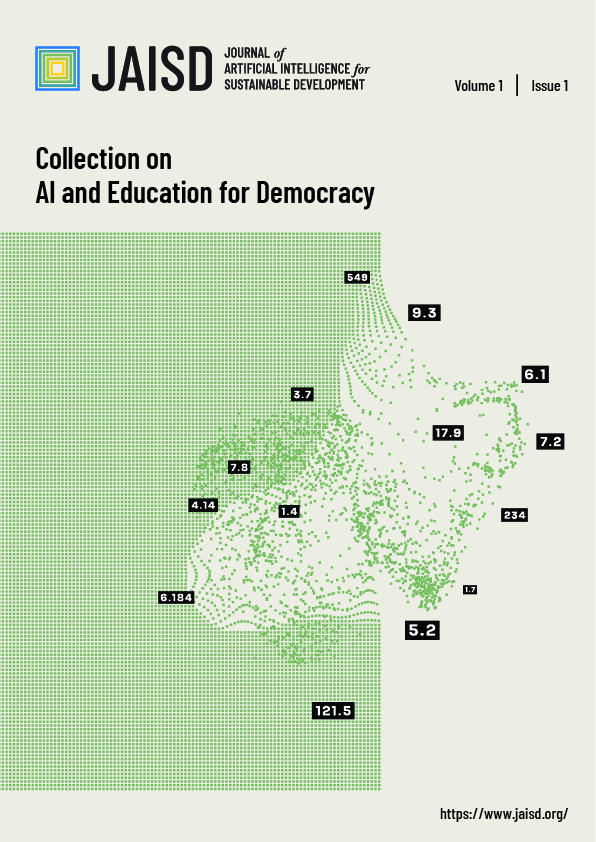The Journal of Artificial Intelligence for Sustainable Development (JAISD) proudly announces the publication of its inaugural issue, highlighting the potential of AI in strengthening democratic values and enabling education for democracy.
This collection of papers originated at a workshop on the corresponding topic, co-organised by the UNESCO Chair on the Ethics of the Living and Artificial (EVA) of the Université Côte d’Azur, with the UNESCO Chair on AI of University College London and IRCAI, the International Research Center on Artificial Intelligence under the Auspices of UNESCO in September 2023. This workshop was the second in a series of workshops that aim to discuss the fundamental questions related to the ethics of Artificial Intelligence, questions which authors believe should be more thoroughly researched.
The issue features two position papers, where authors, experts in social and computer science, offer views on how AI systems should be designed to create educational experiences that strengthen democratic values and enhance democratic engagement.
In the foreword, the writers advocate for an “ethics by design” approach, emphasizing the need for AI systems that support fair representation and inclusive dialogue within democratic frameworks.
In the first position paper, “Dare to Think: Education for Democracy with AI”, Vanessa Nurock explores the notion that AI could herald a new Enlightenment era. Nurock argues that AI can foster a more democratic education if it is designed to preserve and enrich human capacities and cultural diversity, avoiding human deskilling and technological colonialism, and supporting an education that empowers democratic participation.
The second position paper, “Human-Centric AI and Education”, addresses the need for a new multidisciplinary research agenda to redefine our relationship with AI. The authors explore a sensory-centric approach to AI and education and its implications for education and democracy. The paper discusses the need for AI systems that prioritize human experience and sensory engagement and argues for a multidisciplinary approach to AI that informs and equips citizens to effectively participate in democratic processes.
The journal was launched on 22 March 2024 at the 20th anniversary of the establishment of AIMS, the African Institute for Mathematical Sciences (AIMS) in Cape Town, South Africa, celebrating Africa’s rich mathematical heritage and promoting growth in scientific endeavours across the world.
Call for Future Contributions
JAISD invites researchers, academics, and experts in the field to submit their original research articles, comprehensive reviews, and case studies for its next issues.Topics of interest include, but are not limited to, algorithmic fairness, transparency, accountability, AI’s impact on the environment, data privacy, and the balance between AI innovation and societal well-being. JAISD seeks to provide a platform for critical discourse, case studies, and solution-oriented approaches that address the ethical dimensions of AI, paving the way for responsible and equitable AI solutions in achieving the Sustainable Development Goals.

